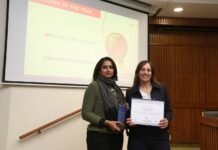suttur is a small village on the banks of the river Kapila, fifteen miles south of Mysore and a Bengaluru. A thousand years ago during the reign of the Chola Kings, a pontiff by the name Shivaratri Shivacharya founded the Suttur Math, a charitable institution with the express aim of promoting literature, academic learning, healthcare and infrastructure in rural India. Today Suttur Math’s activities have spread across India and overseas with over 300 educational institutions from kindergarten to graduate courses in science, medicine, dentistry, pharmacy and engineering
— the JSS Mahavidyapeetha University, a 2000 bed modern hospital at Mysore, two pharmacy colleges and a dental college and a dental hospital. In addition, the Math has built rural healthcare and cultural centres, old age homes, student hostels and agriculture research facilities across the states of Karnataka, Tamilnadu and Uttar Pradesh.
International accreditation
JSS has four engineering colleges of which two are in Karnataka, one in Mauritius and one in Noida called the JSS Academy of Technical Education – among the first institutes in the country to implement the ‘outcome- based education’ model to monitor and assess the performance of teaching done in classrooms. “We have
completely restructured our teaching based on this model,” says professor TN Nagabhushan, principal of JSS Noida, “and, after at least two years of
implementation we will go in for accreditation under the Washington Accord.”
The IITs reluctantly accepted the outcome-based education and the Washington Accord last year after years of dogged resistance. The IITs have been given the freedom to carry out the review themselves and submit their reports to the National Board of Accreditation instead of being reviewed by the NBA. The Accord that has thirteen signatories including the US, Canada, UK, Japan and Singapore inducted India and China as provisional members last year. It lays down the standards for ‘outcome- based education’ that would treat Indian education and degrees at par with those of the full signatory nations.
Formed in 1987, the NBA was empowered as an autonomous body in 2010 to represent India in the Washington Accord and is responsible for its implementation. It has devised a detailed plan at the macro as well as the micro level to be followed by all engineering, management, pharma and architecture colleges who desire accreditation. The macro level planning included opening 24 nodal accreditation centres across ten states amongst the early adopters and executing a step-by-step plan for the
induction of more institutes in the program.
Changing the mindset
“I have taught, but have they learnt?”says Nagabhushan. He goes on to explain, “This is the question we ask ourselves while incorporating the program. Implementation at the micro stage is actually very complex and is designed to change the mindset of both the staff as well as the students.
The first stage involves the stakeholders (teachers, students, administrators, alumni, industry) to prepare a vision and mission document of teaching that should align with each department, each course, each textbook teaching plan, and each teaching hour spent . . . It is a step-by-step structured plan to guarantee that teachers give to students skills, knowledge and creative thinking.”
If a prescribed book of 240 pages has to be taught during 40 hours of teaching, then each teacher should document the output for each 6 pages taught. The JSS faculty diary ensures that teachers create a documented lesson plan with objectives, outcome of lecture, list of possible questions, new knowledge imparted for every teaching hour. If 40 hours of teaching does not take place due to unforeseen holidays, strikes or any other problem, then extra assignments and classes have to be given by the teacher to ensure that the outcome is met.


















